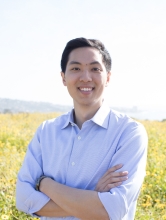
Dr. William Tsai (Assistant Professor of Applied Psychology, NYU Steinhardt) is a two-time IHDSC Seed Award recipient, both times for research related to addressing health concerns of Chinese Americans. His 2019 project, “Helping Oneself by Helping Others: Testing the Feasibility of a Narrative Intervention for Chinese American Cancer Survivors,” led to additional funding by the National Institutes of Health. On the Ground interviewed Dr. Tsai to discuss his motivations, methods, and experiences of working with this population.
Please share with us the inspiration or motivation for this research and how you hope it will contribute to dismantling disparities in health.
I am passionate about conducting research on Asian American health because Asian Americans experience cancer health disparities along the entire cancer continuum, from diagnosis to survivorship. Asian Americans are the fastest-growing immigrant group in the United States, and they are projected to surpass 46 million by 2060 (almost four times their current total population). Yet, there has been a dearth of support for research on Asian American health. A recent study published in the Journal of American Medical Association (JAMA) indicated that only 0.17% of the total NIH budget from 1991 to 2018 was awarded to studies focused on Asian American populations. The lack of inclusion in research and funding can be partly attributed to the longstanding model minority stereotype that Asian Americans are well-off and do not need resources or scientific attention. On the contrary, according to the 2019 New York City Government Poverty Measure, more Asians are in poverty than their White, Black, and Hispanic counterparts. In terms of access to government resources and aid, a 2014 report by the Asian American Federation noted that Asian American community organizations received an average of $600,000 in aid compared to the $1.4 million that similar affinity groups received. As applied psychology researchers, I believe we have important roles to play in improving the health of our communities and promoting equity for all.
What made you interested in writing-based intervention? What were the benefits and complications of studying this type of intervention?
I became interested in writing-based interventions, such as Expressive Writing, during my graduate school training when I was studying how culture influenced the ways in which people reflected on their negative experiences. By coding the writing sessions generated from Expressive Writing interventions, I learned how people naturally recalled and processed their distressing emotions and thoughts and how these processes were associated with their mental health over time. My research studies showed that people experienced mental health benefits from disclosing their emotions over writing when they did so in a way that was congruent with their cultural values.
With the IHDSC Seed Award, I tested a writing-based intervention called Expressive Helping. This writing intervention was first developed by Dr. Christine Rini from the Feinberg School of Medicine at Northwestern University. Prior work has shown that 58% of Chinese Americans are limited in English proficiency and are less likely to have access to linguistically appropriate medical care. In addition, Chinese American cancer survivors are more likely to be affected by cancer stigma and are less willing to express cancer-related distress out of fear of burdening others. Subsequently, Chinese American cancer survivors have higher levels of depression and anxiety than their non-Hispanic White counterparts. Due to these reasons, I believe that a writing-based intervention like Expressive Helping has strong potential to be a culturally-sensitive and effective intervention for this population.
Expressive Helping integrates two distinct areas of research showing that expressive writing (i.e., a writing intervention that facilitates emotional disclosure) and helping others (e.g., support giving) improve psychological well-being among healthy and clinical populations. In expressive helping, participants write about their cancer experiences, disclosing their emotions and providing encouragement and guidance, with the knowledge that their narratives will be shared with and used as a resource for other cancer survivors. Expressive helping may be particularly beneficial for Chinese cancer survivors because the peer helping aspect aligns with collectivism, a cultural set of values strongly endorsed in Chinese culture that prioritize the well-being of in-group members over oneself. Some of my prior research has demonstrated that higher levels of support giving were associated with fewer depressive symptoms among Chinese individuals with high levels of collectivism.
This study used a mixed-methods approach in which we interviewed participants about their experience with the writing intervention after they completed self-reported surveys. This approach allowed us to learn more from the participants themselves and provided them with an opportunity to teach us how to improve the intervention. We published a paper that detailed the various community-based participatory research approaches and strategies used to maximize participant recruitment, engagement, and retention. We are particularly grateful for the Hamilton Madison House and the NYU Langone Asian Liver Health Program for their collaboration in this study.
You set out to study this issue before a series of national and global events that increased health and mental health concerns across the board (COVID, police violence, elections, etc.). How did this impact your research? What, if any, implications does this work hold for practical strategies to support health and mental health concerns more generally for Chinese-speaking folks?
There has been a large increase in anti-Asian harassment and violence due to the COVID-19 pandemic. Unfortunately, the fear of becoming a victim of racial violence, on top of the fear of contracting COVID-19 as a cancer patient with more health vulnerabilities, led to a few participants dropping out of the study. However, I was grateful for the many participants who continued on and completed the entire study. Because our study was already conducted remotely and did not require any in-person activities, we were fortunate to be able to continue this work even during the pandemic. While our study focused on Chinese immigrants with cancer diagnoses, the act of putting our thoughts and feelings into written words can be a therapeutic process that everyone can benefit from. Aligned with the peer helping component of the Expressive Helping intervention, finding opportunities to support others around you (e.g., by volunteering) can be a helpful strategy for improving one’s mood.
One of the hopes for research funded by the IHDSC Seed Award program is that these findings will serve as seeds for future externally funded research. In your case, you were successfully able to apply for an NIH K01 award. What has this research ultimately grown into as part of the NIH award, and where else can you see it going?
I am grateful for the IHDSC seed award and the administrative support at IHDSC that contributed substantially to my NIH K01 award. The K01 award aims to take Expressive Helping to the next level. We have just completed 24 interviews with Chinese-serving community leaders, medical professionals, and Chinese cancer patients to obtain feedback on ways to further improve the Expressive Helping intervention. With this information, we are updating and adapting the Expressive Helping intervention to be even more culturally-sensitive to maximize its potential benefits. We look forward to examining an updated version of Expressive Helping in a randomized controlled trial next year.
Read More
Q&A: Dr. Stephanie Cook
Dr. Stephanie Cook (NYU School of Global Public Health) spoke with On the Ground about her 2020 Seed Award project, “Optimizing a Daily Mindfulness Intervention to Reduce Stress from Discrimination among Sexual and Gender Minorities of Color.”
IHDSC Seed Award Program
IHDSC is committed to funding new projects that bridge multiple domains of expertise and further the mission of the Institute.




